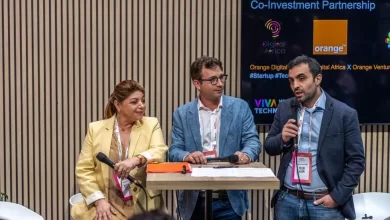US $3.6 M received by DiviGas in seed funding round

DiviGas, a Singaporean business that develops industrial membranes for refineries, has received US $3.6 million in seed investment sponsored by MANN+HUMMEL’s venture arm.
Energy Revolution Ventures from the United Kingdom, Volta.VC from the United States, and climate angel investor Albert Wenger are among the other investors.
The money will go toward the commercialization of a novel next-generation polymeric hydrogen separation membrane, according to the company. This molecular filter helps collect CO2 while purifying hydrogen.
DiviGas will also use the funds to deploy its first industrial-scale production pilots of Divi-H to a select set of partners under the first two mass manufacturing lines. It will also support DiviGas’ future CO2 filtering membrane product.
DiviGas, which was founded in 2019, has created a novel membrane production technique. They want to recycle unrecoverable hydrogen gas from refineries, chemical plants, fertilisers, methanol and metallurgical production, power-to-gas systems, gasifiers, and a variety of other manufacturing operations.
DiviGas believes that using the membrane will save the typical refinery $3-6 million per year, with a 2-3x return on investment.
DiviGas’ polymeric membrane, Divi-H, may also be used to enhance existing hydrogen reactors to produce “blue” hydrogen by capturing CO2 during natural gas splitting.
Divi-H is made with a novel polymer composition and tens of thousands of polymeric hollow fibres in modules. This leads to increased resistance, which may be used in a variety of applications ranging from fuel gas recovery to loop optimisation via H2/CO adjustment and carbon capture.
“We are convinced that Hydrogen and CO2 separation is key for decarbonising and growing the hydrogen economy, for which Divigas has a unique solution,” said Adonis Pouroulis at Energy Revolution Ventures. “Only through new technologies, deployed at pace and scale, can we accelerate the advent of a sustainable world.”
Every year, refineries, chemical plants, and fertiliser plants create US$110 billion in hydrogen gas, of which 15%, or US $16 billion, is lost to flaring, according to the International Energy Agency. Hydrogen generation is also a substantial CO2 emitter, accounting for over 1000 million tonnes of CO2, or about 2% of worldwide CO2 emissions.
Climate change has gotten a lot of attention recently, thanks to the recent COP26 meeting, which brought parties together to accelerate action toward the Paris Agreement and the UN Framework Convention on Climate Change’s goals.




